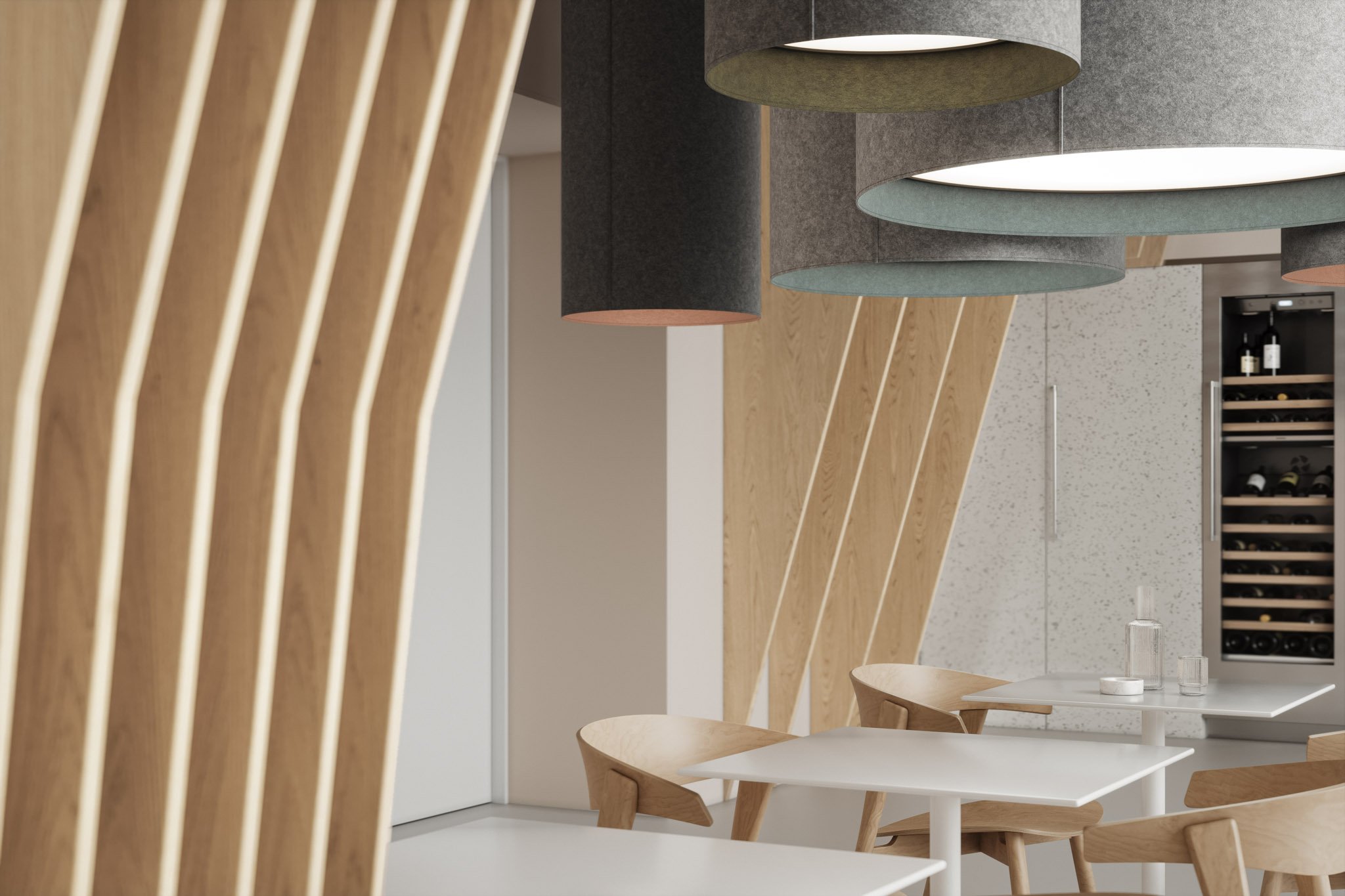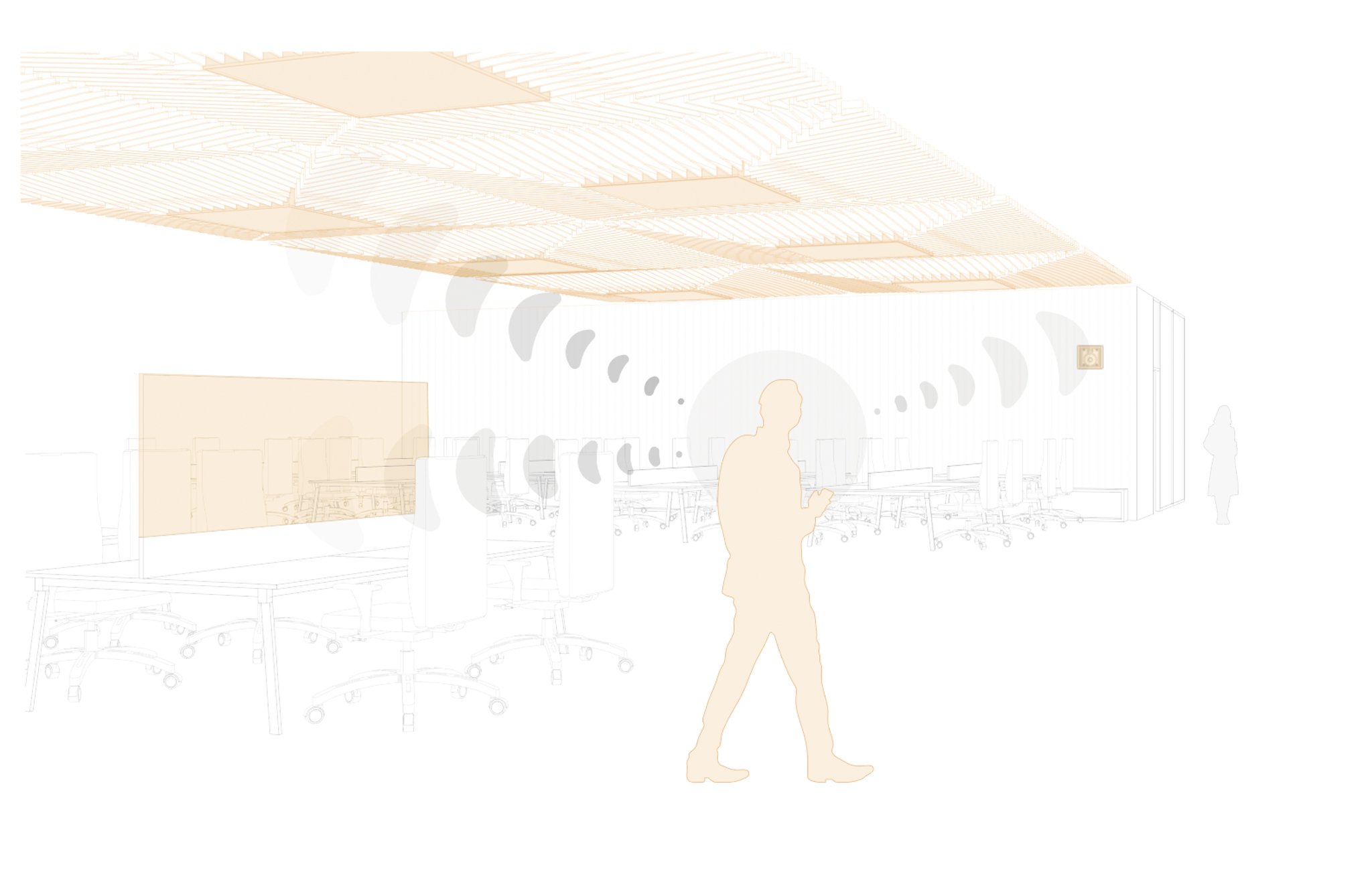
ACOUSTICS
Acoustics are a vital sign.
Sabin is the first company founded equally on acoustics + lighting. With NRC ratings over 0.95, our products absorb up to 95% of sound energy, neutralizing distractions in spaces with open concepts, hard surfaces, or high capacity. We ensure interiors remain comfortable and bright without compromising on design

Our products undergo rigorous testing using ASTM C423, the standard method for measuring sound absorption in a reverberation room. Only products with a Noise Reduction Coefficient (NRC) higher than 0.85 meet our performance criteria. However, while each product excels individually, maximum sound absorption is achieved by combining products in patterns such as ceiling baffles or Embedded Arrays™, effectively trapping sound within the ceiling.
the abc’s of acoustics
Modern design often features hard materials and open layouts, leading to acoustic challenges. Sound becomes distracting and disturbing in busy restaurants or echoing lobbies. While building codes typically mandate minimum sound management, the benefit of high-performing acoustic solutions pay off exponentially. Designers use various methods to mitigate noise levels effectively; the three most common methods are known as the ABC’s of acoustics.

ABSORPTION
When a sound wave is absorbed, it hits a surface and transforms into thermal energy. Sabin employs this method with our products, using PET felt and large surface areas to trap sound waves and prevent them from reflecting back into the space.
Blocking
In this method, sound waves are blocked and unable to travel. Applications of sound blocking must be very specific, such as partitions or cubicles in an office. Blocking is challenging to apply to a room with complex configurations.
covering
Covering, also known as masking, is commonly experienced as noisy air conditioners or background music. This method uses white, brown, or pink noise to draw attention away from prominent sounds and create a baseline of acoustic activity.
Acoustic DESIGN SERVICES
More than a manufacturer—we’re a design partner. Our Design Services provide tailored configurations that align with your floor plan and design objectives. We'll assess your acoustic needs and calculate the absorption required to maintain comfortable decibel levels. Contact us at Info@Sabin.Designto get started.
Standards and requirements for sound control
There are two types of sound control required: Sound Transmission Class (STC), which is airborne sound such as music, talking, etc., and Impact Insulation Class (IIC), which is structure-borne sound such as moving furniture, opening doors, walking, etc. The following are just some of the building codes, requirements, guidelines, and/or standards to consider for acoustic performance in interiors:



